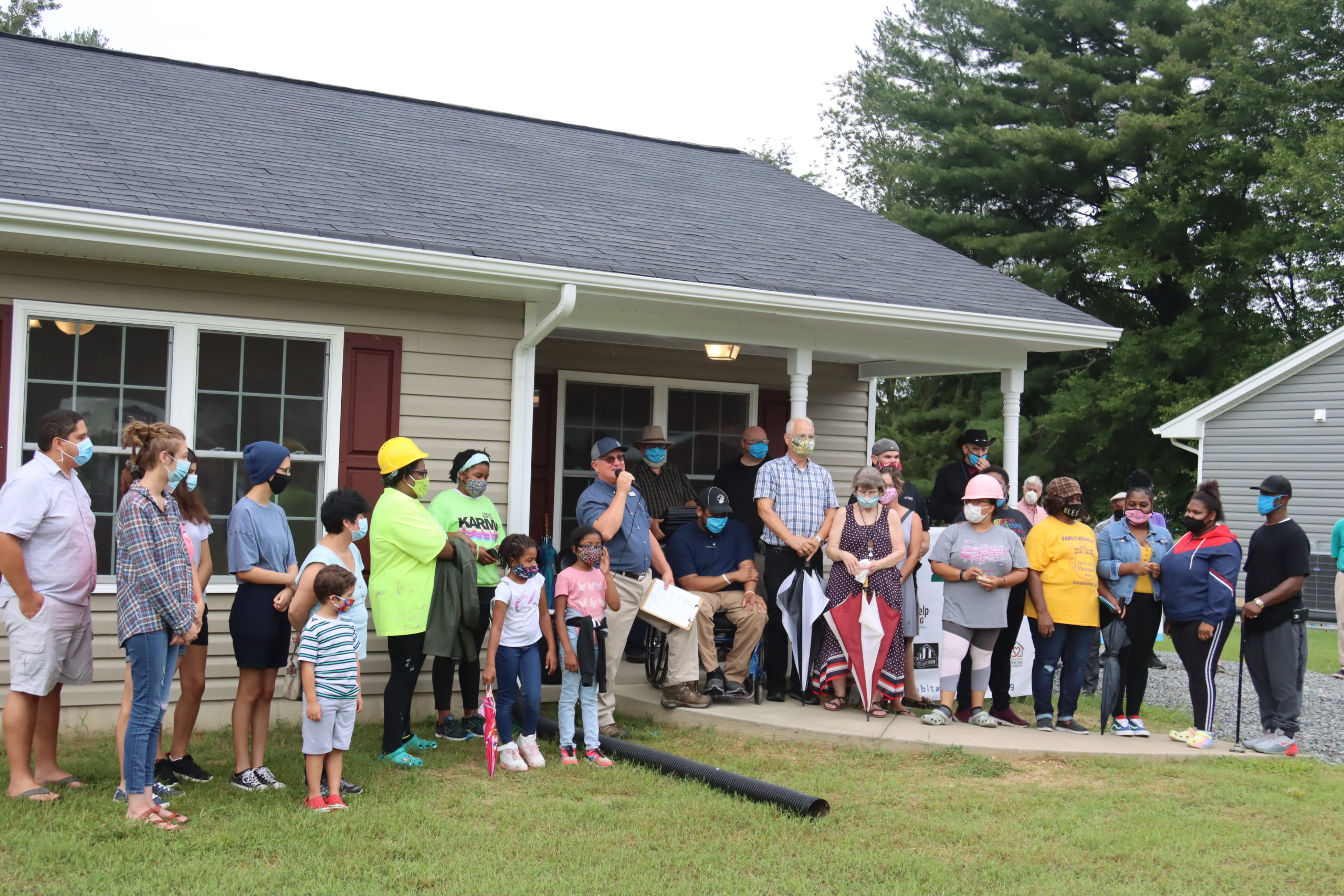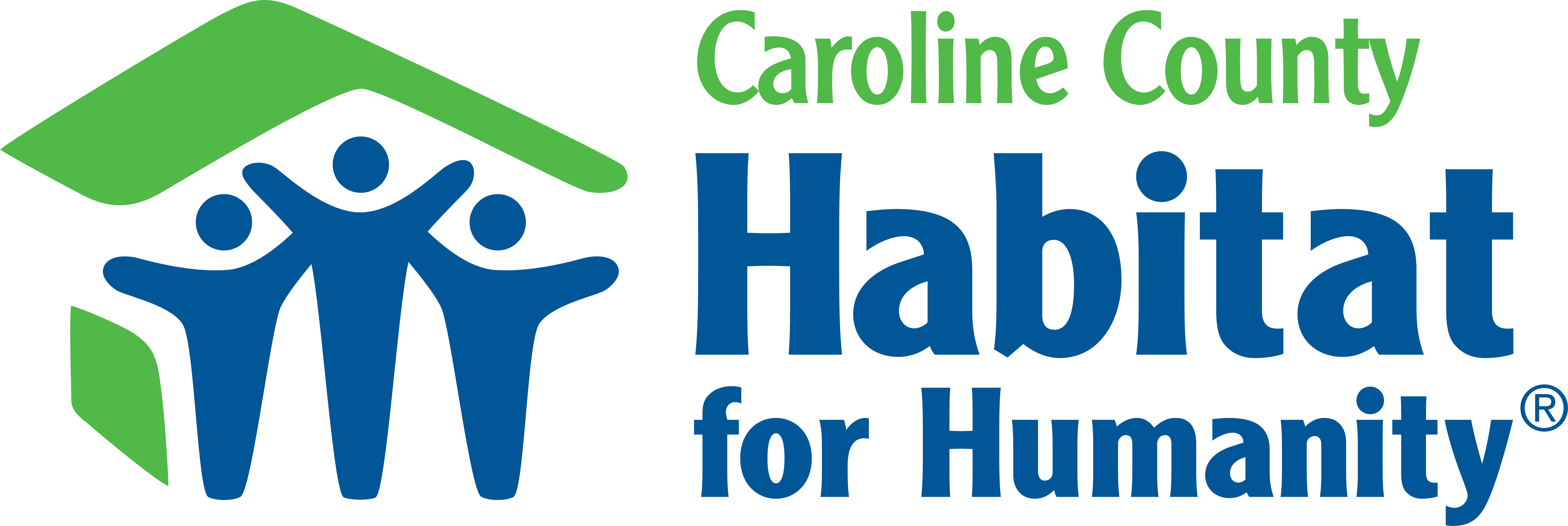
by wagonwheelcreations | Aug 9, 2022 | Uncategorized
Held on August 17 at 6 p.m. at the Habitat for Caroline office, 17518 A P Hill Blvd, Bowling Green, VA. Learn how the Self-help Method works and if it is right for you. Working with other families you build each other’s homes. This saves at least 20% off the cost of the home through labor savings.

by wagonwheelcreations | Aug 8, 2022 | Uncategorized
Caroline Habitat for Humanity receives $2M grant
From The Freelance–Star June 2022. By Adele Uphaus
The George Washington Regional Commission on Monday approved awarding a $2 million affordable housing grant to Caroline County Habitat for Humanity.
The grant is part of $40 million that Virginia Housing is making available to the state’s 21 planning districts for affordable housing developments.
The $2 million that is available to Planning District 16—which includes Fredericksburg and the counties of Stafford, Spotsylvania, Caroline and King George—is tied to the creation of 20 affordable housing units for those making less than 80 percent of the Area Median Income as defined by the U.S. Department of Housing and Urban Development.
Caroline Habitat plans to combine the $2 million with funding from the United States Department of Agriculture 523 Mutual Self-Help and 502 Direct Loan programs to build 20 single-family homes in Caroline by June 2024, according to a press release from the county.
At least 12 of the homes will be constructed under the mutual self-help program, by which families group together to contribute 65 percent of the labor to build each other’s homes. The “sweat equity” provides the down payment on the home’s mortgage.
Another of the homes will be built and sold at cost to a disabled veteran who uses the USDA 502 Direct Loan or a Veteran’s Administration Loan. Carpentry students at Caroline High School will help with the construction of the house.
Jason Tickle, director of Caroline Habitat, said the plan is for the remainder of the 20 homes to be built by for-profit developers, following a basic design provided by the nonprofit. Caroline Habitat will use its loan packaging services to obtain USDA loans that will make these homes affordable for families that classify as low- or very low-income according to the USDA.
Tickle said a family of four with an annual income of $70,000 will qualify for the loans.
“If you make that, we can get you enough of a loan that one of our for-profit partners can build you a home and it will be affordable,” he said. “It’s a way for us to get more folks into a home who maybe can’t use the self-help loan program.”
Tickle said involving for-profit builders in the affordable housing market will go further in solving the housing crisis.
“I really believe, and one of the things I’ve talked about consistently, is if we’re going to try to make a dent in this affordable housing problem, we have to get more for-profit builders involved,” he said.
Tickle said the plan is to break ground on the first five houses this summer. Four of the homes will be located in the town of Bowling Green and the fifth in the Milford area.
The GWRC reviewed six “proofs of concept” for projects that would increase the stock of affordable housing in the region, commission executive director Chip Boyles said. Caroline Habitat and Fredericksburg Habitat were the two organizations to submit full applications for the $2 million grant.
The applications were reviewed by a committee made up of regional stakeholders and were scored based on “project feasibility, support from local governments, team capacity, supporting special needs, project readiness, and innovation,” Boyles said.
The two proposals were similar, Boyles said, but Caroline Habitat’s application was selected based on it being “the project more ready for start and completion.”
The GWRC board last fall voted against accepting the $2 million grant from Virginia Housing, citing concerns about whether the amount would be able to accomplish much given the rising cost of land, government interference in the housing market and the possibility of too much of the grant going toward overhead.
After hearing more about what other planning districts have done with the grant money, commission members decided in early November to request proofs of concept for local projects and then reconsider accepting the grant money.
Tickle said the community rallied in support of accepting the grant money from Virginia Housing.
“It was really amazing to see, from elected officials to other organizations in the area just saying: we have nonprofits in the region that can deliver these homes,” he said. “There were a lot of good concepts presented that showed that there is capacity and interest in the community and once everybody saw the different options, I think it was an easy decision to move forward. We’re just really happy and excited that this went down.”


